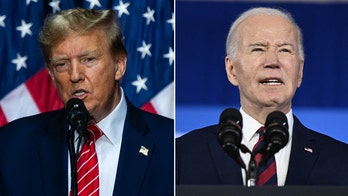The Supreme Court announced on Tuesday that it will hear arguments from a group of Chinese Muslims who have been imprisoned at the Guantanamo Bay prison camp for more than seven years even after the Pentagon determined they are not threats to the United States.
The justices, as is custom, gave no reason for their decision to hear the case brought by a group of men known as Uighurs who are looking to leave Guantanamo.
The high court could have moved on the matter in June but it delayed action until now, possibly because of efforts by the Obama administration was taking to move the men out of Guantanamo. That same month, four Uighurs were relocated to Bermuda.
The Pacific island of Palau has agreed to take 12 of the remaining 13 Uighurs on a temporary basis. Last month, Solicitor General Elena Kagan sent a letter to the court saying that at least six of the men have agreed to the transfer. Government officials on the island nation report that several of the men refuse to go there fearing reprisals from their home country.
Relocating the Uighurs is just one part of a larger headache for the Obama administration's efforts to meet its self-imposed pledge to close the facility by January.
The Uighurs were picked up in Afghanistan following the Sept. 11 attacks but have steadfastly maintained they had no role in supporting the Taliban, Al Qaeda or fighting the United States. The government does not allege the men are terrorists and insist they are free to go to any country they want--provided that country will take them. Palau has specifically said it will not accept one of the Guantanamo detainees, Arkin Mahmud.
Last year, a federal judge in Washington concluded the men had been detained long enough and ordered the men released into the United States. On emergency appeal, a U.S. appeals court blocked that decision and eventually overturned the ruling. Kagan had asked the court not to take the Uighur's case; she said immigration laws prevent the men from entering this country.
Kagan also argued that because the Uighurs are no longer considered enemy combatants and free to leave Guantanamo; there is no need for a judicial order forcing them into this country.
"The decision whether to allow an alien abroad to enter the United States, and if so, under what terms, rests exclusively in the political branches," she said.
Lawyers for the Uighurs told the court that the lower court decision now under review presents a fundamental question of "whether it is for the prisoner to justify release or the jailer to justify imprisonment."




